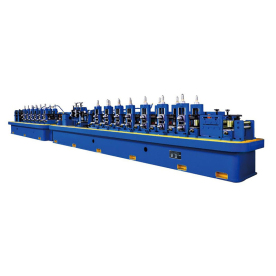[Heat-Resistant HSS Blade]Exploring the Advantages and Applications of Heat-Resistant HSS Blade: A Game-Changer for Industrial Cutting Processes
News 2024-9-17
In today’s fast-paced industrial landscape, the demand for high-quality cutting tools is ever-increasing. One of the standout innovations that have emerged in recent years is the heat-resistant High-Speed Steel (HSS) blade. These blades are engineered to withstand extreme temperatures that would typically degrade conventional cutting tools, providing businesses with enhanced performance, longevity, and reliability in various machining processes. In this article, we will delve into the advantages of heat-resistant HSS blades, their applications, and why they are becoming a game-changer in the world of industrial cutting.
What is High-Speed Steel?
High-Speed Steel, commonly known as HSS, is a type of tool steel that provides high hardness and wear resistance, making it an ideal choice for cutting tools. HSS is designed to retain its cutting edge even at elevated temperatures, allowing for high-speed machining without significant wear. This characteristic is particularly beneficial in applications where rapid cutting speeds are required, such as milling, drilling, and turning operations.
The Emergence of Heat-Resistant HSS Blades
Heat-resistant HSS blades go a step further by incorporating advanced materials and unique design features that enhance their performance under extreme conditions. These blades are specifically treated and manufactured to combat thermal fatigue, oxidation, and wear associated with prolonged high-temperature usage. As a result, they provide superior cutting performance while maintaining their integrity and precision over extended periods.
Advantages of Heat-Resistant HSS Blades
1. **Enhanced Durability and Longevity**: One of the most significant benefits of heat-resistant HSS blades is their extended lifespan compared to traditional blades. The ability to withstand heat helps prevent deformation and hardening of the blade edges, ensuring consistent performance and reducing the frequency of tool replacement.
2. **Improved Cutting Efficiency**: With their ability to operate at higher temperatures, heat-resistant HSS blades can achieve faster cutting speeds. This increased efficiency not only saves time but also enhances overall productivity in manufacturing processes.
3. **Versatility**: These blades are suitable for a wide range of materials, including metals, plastics, and composite materials. This versatility makes heat-resistant HSS blades a valuable investment for industries such as aerospace, automotive, and metalworking, where different materials must be processed efficiently.

Exploring the Advantages and Applications of Heat-Resistant HSS Blade: A Game-Changer for Industrial Cutting Processes
5. **Consistent Quality**: The design and construction of heat-resistant HSS blades contribute to a more consistent and stable cutting process. This reliability helps maintain precision, which is crucial for industries requiring high-quality standards.

Exploring the Advantages and Applications of Heat-Resistant HSS Blade: A Game-Changer for Industrial Cutting Processes
Heat-resistant HSS blades are utilized in various industries due to their robust performance. Here are some key applications:
- **Metal Machining**: In metalworking, these blades are ideal for cutting steel, aluminum, and other alloys. Their heat resistance prevents edge chipping and wear during high-speed operations, leading to improved surface finish and accuracy.
- **Aerospace Manufacturing**: The aerospace industry often requires parts to be machined from high-strength materials that can generate significant heat during cutting. Heat-resistant HSS blades offer the precision and durability needed for critical components like turbine blades and structural elements.
- **Automotive Industry**: In the production of automotive parts, these blades are used for machining complex shapes and tight tolerances. The heat resistance and efficiency of HSS blades ensure that components are manufactured to the highest standards.
- **Woodworking and Composites**: Beyond metalworking, heat-resistant HSS blades are also effective in cutting composite materials and wood, where heat buildup can be an issue. Their ability to maintain cutting performance in these applications is essential for manufacturers seeking high-quality results.
Conclusion

